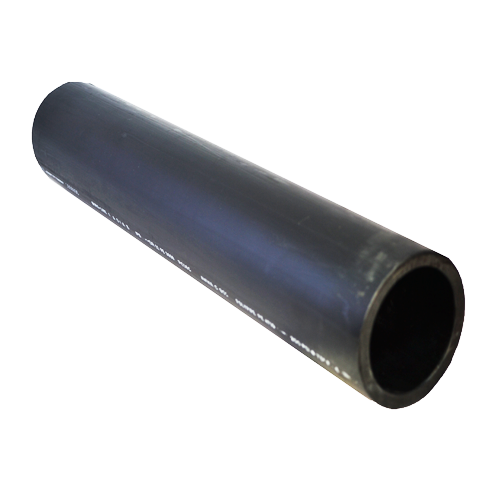How American Plastics HDPE Pipe Manufacturing Maintains High Standards
Comprehending the Key Advantages of HDPE Pipeline for Water and Wastewater Monitoring
Making use of HDPE pipeline in water and wastewater management presents many benefits that warrant factor to consider. Its extraordinary sturdiness and lengthy life-span make it a recommended selection for lots of projects. Furthermore, the material's resistance to rust and chemical damage boosts its reliability in different atmospheres. However, the benefits expand beyond just longevity and resistance. Discovering its cost-effectiveness and ecological effect discloses much more compelling reasons for its prevalent fostering in modern-day facilities
Outstanding Toughness and Long Life

HDPE pipeline sticks out for its phenomenal sturdiness and longevity, making it a preferred selection in water management systems. Built from high-density polyethylene, these pipelines can endure considerable stress and tension, guaranteeing trusted performance over time. Their durable nature permits them to withstand severe environmental problems, consisting of temperature variations and soil motions, which can trigger various other materials to stop working.
The life expectancy of HDPE pipelines typically goes beyond 50 years, providing an economical service for districts and markets alike. Additionally, the product's light-weight residential properties simplify installment, reducing labor costs and timeframes. This durability lessens the requirement for frequent repair services or replacements, further boosting its economic appeal.
In water management applications, the reliability of HDPE pipelines implies less interruptions and boosted service connection, making them essential to sustainable framework advancement. The combination of longevity and longevity strengthens HDPE's duty as a keystone in efficient water monitoring remedies.

Resistance to Rust and Chemical Damages
While lots of products catch deterioration and chemical damages over time, HDPE pipelines show impressive resistance, making them suitable for different water administration applications. This resilience comes from the molecular structure of high-density polyethylene, which is inherently non-reactive and does not wear away like metals or break down from direct exposure to severe chemicals. Consequently, HDPE is extremely effective in settings with hostile substances, such as wastewater systems that may have acids, bases, and natural solvents.
Additionally, HDPE pipes can hold up against ecological elements such as dirt level of acidity and saline problems, even more boosting their viability for varied applications (custom hdpe pipe manufacturing Midland TX). Their capability to maintain structural stability over time lowers the threat of leaks and failings, which is important in ensuring the safety and security and integrity of water distribution and wastewater management systems. Subsequently, the resistance to corrosion and chemical damage considerably contributes to the general efficiency and long life of HDPE piping services
Cost-Effectiveness and Economic Benefits
When taking into consideration the monetary implications of water administration systems, the cost-effectiveness of HDPE pipes ends up being noticeable. These pipelines use reduced installation and maintenance prices contrasted to traditional materials like metal or concrete. Their lightweight nature simplifies transportation and installment, causing decreased labor expenditures. Furthermore, HDPE pipes exhibit a lengthy life see this website expectancy, usually exceeding 50 years, which equates to less substitutes and long-lasting financial savings.
In addition, the resistance of HDPE to deterioration and chemical damages lessens the demand for pricey repair services and replacements. The pipes likewise support efficient water flow, reducing energy costs connected with pumping systems. By reducing leaks and water loss, HDPE pipes contribute to considerable economic advantages for towns and sectors alike. On the whole, the preliminary investment in HDPE piping can generate considerable economic returns over the life expectancy of the water administration system, making it a sensible choice for lasting facilities growth.
Ecological Sustainability and Decreased Effect

Versatility and Adaptability in Installment
Since of their distinct properties, HDPE pipes use exceptional adaptability and adaptability in setup, making them ideal for a wide variety of applications. Their lightweight nature permits much easier handling and transport, reducing labor expenses and setup time. HDPE pipes can be curved and shaped to fit different surfaces and project requirements, which is specifically advantageous in testing environments.
Additionally, their resistance to deterioration and chemical damages enables for installation in varied settings without the need for specialized protective coverings. The ability to fuse joints develops a continuous, leak-free system, enhancing the general honesty and dependability of the setup. HDPE's flexibility likewise suits ground movement, decreasing the install gas line for stove threat of damage in areas susceptible to moving soil. Overall, these qualities make HDPE pipelines not only functional yet likewise a favored option for water and wastewater management systems.
Frequently Asked Concerns
Just How Does HDPE Pipe Compare to PVC in Water Management Applications?
HDPE pipe uses exceptional flexibility, resistance to corrosion, and sturdiness compared to PVC. Its lighter weight promotes simpler setup, while its lengthy lifespan decreases replacement prices, making HDPE a favored choice in water monitoring applications.
What Is the Life Expectancy of HDPE Pipeline Under Regular Problems?
Under typical conditions, HDPE pipelines can have a lifespan ranging from 50 to 100 years. Their toughness and resistance to corrosion contribute to their lasting performance in various applications, making them a dependable choice for facilities.
Are HDPE Pipeline Recyclable After Their Solution Life?
Yes, HDPE washer hose connector pipes are recyclable after their life span. hdpe pipe in stock Midland TX. They can be processed and repurposed right into new items, significantly lowering environmental effect and advertising sustainability within the industry, making them a green selection for piping solutions
What Is the Installation Process for HDPE Pipes?
The installment procedure for HDPE pipes includes site preparation, trenching, pipe combination or mechanical signing up with, backfilling, and pressure screening. Appropriate methods ensure a durable and efficient system for transferring water and wastewater successfully.
Can HDPE Piping Be Made Use Of for Both Potable and Non-Potable Water Solutions?
Yes, HDPE pipes can be used for both drinkable and non-potable water systems. Their flexibility, toughness, and resistance to deterioration make them ideal for different applications, ensuring risk-free and effective transportation of water in various contexts.